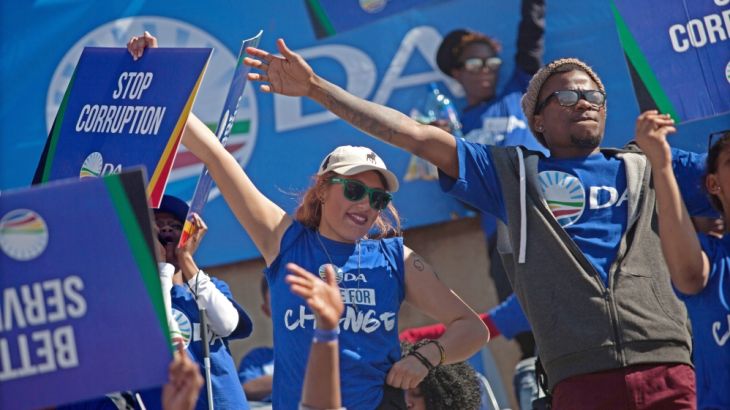South Africa: Local elections a litmus test for ANC
South Africans are voting in local elections, the layer of government with the largest impact on peoples’ daily lives. The vote will be a verdict on the governing African National Congress.

Pot holes in the road? Uncollected rubbish? No water supply?
These are not the headline grabbing issues many political prodigies dream of making speeches about, but they are the bread and butter of local government. That’s the layer of government closest to the people. In the cities, townships and villages, quality of life depends on basic services – water and electricity to name a few. Local government is responsible for maintaining those services.
Keep reading
list of 4 itemsIndia votes in first phase of marathon election as Modi seeks third term
The Take: What would a third Modi term mean for India?
Full jury panel seated on third day of Trump’s New York hush-money trial
This vote will be a litmus test for the governing African National Congress (ANC).
In the last municipal election the ANC won 62% of the vote. But this year some polls are predicting it could lose support, and may even lose its majority in three key metropolitan areas: Johannesburg, Tshwane (which includes Pretoria) and Nelson Mandela Bay.
The main opposition party, the Democratic Alliance (DA), is unlikely to win any of areas outright, but it could combine votes with the third largest party in South Africa, the Economic Freedom Fighters, to form a coalition. It would be a strange alliance, as the two are diametrically opposed on many issues and would be rather uncomfortable bed-fellows, but sometimes opposites attract.
READ MORE: Are students the key to real change in South Africa?
The ANC has been campaigning hard, leaning heavily on its history as a liberation movement. There’s been a row between the ANC and DA over former president Nelson Mandela’s legacy. The DA claims it, and not the ANC, is the party that is upholding Mandela’s ideal of a multi-racial, equal society, which has infuriated the ruling party and many of its supporters.
President Jacob Zuma struck back recently, claiming that if voters don’t support the ANC, “it’s like choosing to be with the devil”.
And although the ANC refutes the doomsday poll predictions, it must be worried. The party has been sliding downhill over the past few elections, and further losses wouldn’t so much be an upset, as on trend.
Voters have a plethora of local issues to choose from aside from the overarching ones. Every week people protest substandard or entirely lacking services.
More than two decades after the end of apartheid, many South Africans feel it is simply unacceptable that they still live in a shack with no running water, electricity, or the chance to earn away out of impovrished slums with a decent job.
The question is whether voters still believe the ANC can fix those problems, or if has it run out of tricks. The overarching issues that may affect voters are the big picture politics – Zuma’s legal wrangles and the ANC’s record of governance nationally.
DA leader Mmusi Maimane: ‘Fighting a system, not a race’
Corruption is a huge problem for the ANC. Most of the money that drips out of circulation that should be spent on improving services goes “missing” at the local government level. Candidates are, literally, being killed in Kwa-Zulu Natal and the Eastern Cape provinces in races for political power and the hopes to influence lucrative government tenders.
If, and it’s still a very big if, the ANC loses a city, it would tell us the party is losing touch with urban voters. And unfortunately for it, that’s where, increasingly, more of the voters will live. But amid all the hype and headlines, it is important to take a step back.
The ANC is a monolithic organization. Its enormously impressive election machinery has been in full swing for months. It has delivered vast improvements to peoples’ lives, it has some excellent policies and it is loved, from East London to Linden.
It will take losing more than a few metros to break it.